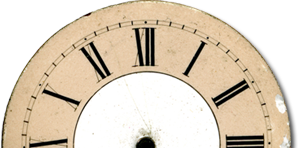28th September 1298
first mention of a Jew in St. Pölten
6-9 June 1305
Abraham und Paltram from St. Pölten, first namely known Jews in St. Pölten
1306
persecution of Jews: by the people of St. Pölten after an alleged host desecration
1338
St. Pöltens is mentioned on a list of "Blutorte" (places of blood), affected by the persecution of Jews in Pulkau
9th September 1338
Municipal Law: Albrecht II., bishop from Passau, acquires St. Pölten a municipal law, containing regulations on Jewish loans; but a jewish life is not verifiable at this time
1420/21
„Wiener Gesera“: Murder or Expulsion from Jews who lived in Vienna and Lower Austria by duke Albrecht V.
Cc. 1600
Resettlement: from Jews in Vienna and Lower Austria; several small Jewish Communities, but not in St. Pölten
1670/71
Second Expulsion from Vienna and Lower Austria
1745
Prohibition of Settlement for the city of St. Pölten
1782
Edict of Tolerance by Josef II.: The prohibition of resettlement in Lower Austria was loosen: Jews were allowed to settle, if the build a factory or have a "nützliches Gewerbe" (useful business)
1788-1848
Residence of wandering traders and Nathan Wiener tries to buy a factory
1848
Bourgeois Revolution: in the wake of the revolution improving the bourgeois rights of the Jews.
16th February 1851
Shil in the Kattunmanufactory von Nathan Wiener (to be Gasser-factory) is accepted by the regional administration
1852
Confirmation of the Status of a community-like organization, employment of a religious teacher
28th April 1857
Application for foundingof a IKG for the territory of the regional administration St. Pölten, Lilienfeld, Melk and Hietzing-surrounding
2nd Mai 1859
Founding of the old Jewish Cemetery in Teufelhoferstraße (todays: Pernerstorferplatz)
1863
Statutes of the „Israelitischen Religionsgenossenschaft“ in St. Pölten confirmed by the authorities
1885-1890
Conversion of the Gasser factory to the (old) Synagogue at Schulpromenade 22 (today: Dr. Karl Renner-Promenade)
1891
Founding of the IKG St. Pölten: The IKG St. Pölten with approx. 1000 members comprises the districts St. Pölten and Lilienfeld as well as the court districts of Hainfeld, Herzogenburg, Kirchberg a.d. Pielach, Melk, Neulengbach and Purkersdorf (including Hadersdorf-Weidlingau).
1894
Founding of the Chewra Kadisha St. Pölten
1902
Women´s Charity, was registered, which already existed before
1904
Jewish Literature Club was founded by Rabbi Dr. Adolf Aron Schächter
1906
Enclosure of the new Cemetery at Karlstettner-Straße 3
1907
Temple Building Association St. Pölten was established
1912/13
Construction of the new Synagogue at the eastern wall of the old Synagogue
17th August 1913
Inaugurationof the new Synagogue
beginning of the 1920ies
Foundation of Betar St. Pöltenas a union of Zionist with the aim of conveying Jewish immigrants to Zionist ideology and to Jewish children and young people and making them emigrate to Erez Israel ( at that time Palestine)
1921
Sports club Makkabi was founded as answer to the increasing anti-semitism
1921
Zionist Regional Association for Austria St. Pölten constituted
1922
Union of German-Austrian Jews in Vienna chapter St. Pölten founded
1929
Jewish Youth League chapter St. Pölten established
1931
Brith Trumpeldor St. Pölten constituted
1931
Zionist Women´s Association chapter St. Pölten registered
January 1935
Association of Jewish Front Line Soldiers and Women's Group were founded in St. Pölten
1937
New-zionist Organisation Austria Ortsgruppe St. Pölten constituted
12nd March 1938
„Anschluss“: Nazis organized „Reibpartien“.
9th/10th November 1938
Novemberpogrom: the interieur of the Synagogue was destroyed
1940
„judenfrei“: The last Jews had to leave St. Pölten. The IKG was dissolved and integrated into the IKG Vienna.
Since1945
no new community founding
1947/48
Only a few families return home from emigration. Approximately 477 members of the community were murdered in the Shoa.
